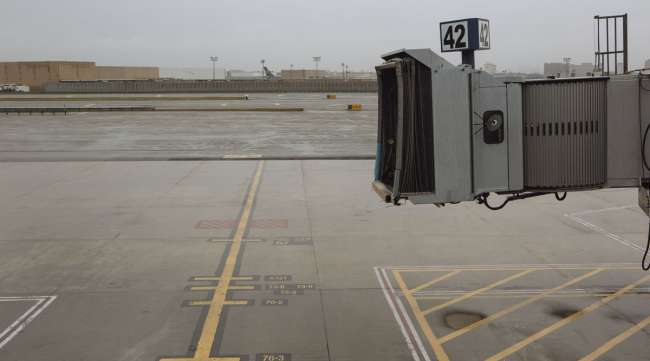Airlines Plunge After United Warns of ‘Essentially Zero’ Demand

[Ensure you have all the info you need in these unprecedented times. Subscribe now.]
U.S. airlines sank after United Airlines Holdings Inc. said travel demand was “essentially zero,” with no sign of improvement in the near term.
United’s dire tone underscored the depth of the crisis for the nation’s carriers despite billions of dollars in assistance from U.S. taxpayers. With the COVID-19 pandemic and government travel restrictions forcing people to stay home, United predicted it would fly fewer people during all of next month than on a single day in May 2019.
The airline will further reduce its flight schedule in May to roughly 10% of what it had planned at the start of 2020, and similar cuts are in store for June, said CEO Oscar Munoz and President Scott Kirby. The U.S. rescue package signed into law last month will help airlines pay employees while obliging the companies not to cut jobs through Sept. 30. But in the longer term, United signaled that payroll cuts may be necessary for the company to survive.
“The challenging economic outlook means we have some tough decisions ahead as we plan for our airline, and our overall workforce, to be smaller than it is today, starting as early as October 1,” Munoz and Kirby said in a message to employees late April 15. “We expect demand to remain suppressed for the remainder of 2020 and likely into next year.”
United fell 9.2% to $28.92 at 11:19 a.m. in New York, the biggest drop on a Standard & Poor’s index of nine U.S. airlines. The industry stock gauge fell 54% this year through April 15, compared with a 14% drop for the S&P 500 Index.
As part of $25 billion in airline assistance being doled out by the U.S. Treasury, United will collect about $5 billion in grants and a low-interest loan.
Carriers also are in line for $25 billion in additional loans as part of the overall economic rescue plan of about $2 trillion. Airlines seeking quick review of their loan applications have been told by Treasury officials to file by April 17.
More than 20,000 United employees have accepted voluntary leave and separation programs as the company seeks to reduce labor expenses. The Chicago-based airline, which had a workforce of about 95,000 at the start of the year, said it would renew efforts to interest more workers in the programs.
“The challenge that lies ahead for United is bigger than any we have faced in our proud 94-year history,” Munoz and Kirby said. “We are committed to being as direct and as transparent as possible with you about the decisions that lay ahead and what impact they will have on our business and on you.”
Want more news? Listen to today's daily briefing:




